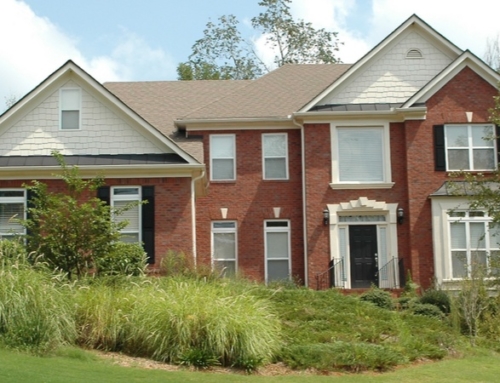Did you know that most folks will decide by looking at a photo on the Internet whether or not they want to see the inside of your house?
Which is why you ought to boost your curb appeal.
According to a recent study, more than 70 percent of home buyers will start their search for a home on the Internet. Whether they decide to make the trip in person to see your house often depends on whether they like what they’re seeing outside, according to Julie Deutsch, a Coldwell Banker agent based in Glencoe, Illinois.
On the recent sale of a house that was listed at $4.9 million, Deutsch said she had over 200 people at an open house, many of whom couldn’t afford to make an offer anywhere near what the sellers would accept.
“But they had seen the photos on the Internet, or driven past the house countless times and really loved the exterior,” Deutsch adds.
Landscape designers say that exteriors can make prospective buyers fell at home before they even walk through the front door.
“The first cue I’m looking for is how easy is the house to find when you’re first arriving and what the feelings are when you approach the house?” says Daniel Owens, a landscape designer with the HGTV show “Curb Appeal.”
What Owens likes to see are front walkways that are welcoming, back patios that invite you to spend long Sunday mornings reading the paper, and plantings that seem to unfold into bloom each week of the summer.
“We want to create a story as you make the transition from the public world into a more private space,” Owens says.
When it comes to curb appeal, most homeowners don’t have a clue. And that’s too bad because your landscaping is the first thing people see.
“I think that’s one of the last things that homeowners really think about. People think about kitchens and bathrooms and closets, but really it’s the exterior that drawn in buyers,” says Deutsch.
Pay close attention to the way the front of your house looks.
“If you don’t paint other parts of the house, you want to paint the front door, the trim. You want to try to make that area as inviting and draw people in as much as possible,” says Jeff Lyons, a spokesman for Realestate.com.
Keeping the detail and finishes consistent really helps create a seamless look and feel.
“The house numbers, the light fixtures, the door handles. All of that stuff should be one tone of material and carried on through out,” Owens says.
When it comes to the back yard, think about how you’re going to use the space before you draw up a plan. The “hardscape,” like pathways and patios, can cost up to 60 percent of your landscape budget. But even if your budget is tight, plain white concrete doesn’t have to be your only choice of materials.
“There are concrete paver products that are wonderful, that can totally dress up the front of a home, that are cheaper to install than concrete and don’t crack the way concrete does,” Owens says.
It’s wonderful to fix up the exterior of your home because you’re going to enjoy it, but the real payoff comes when it’s time to sell your home.
“As you think about landscaping, a well-improved house can actually sell for about 10 percent more than one that wasn’t in the same condition,” Lyons says.
Deutsch agrees, noting that the payoff might be a faster sale than you otherwise would have had.
But more importantly, having a great exterior means more people will take a second look at your property.
“About half of all home sales are actually decided on the curb,” Lyons says. Which is what happened with this multi-million dollar mansion.
If you can’t afford to spend thousands of dollars to create magical curb appeal, consider doing some of the work yourself. You can phase in the work over several years, doing the hardscape one year, then plantings over the next few years.
Getting a great design that you’re happy with is important, Owens adds. “The plan itself might cost $500 to $1,500, but it will be worth it once you’re done with the work.”
For more information, check out the free booklet on improving your curb appeal from Allied Van Company. You can download it from the company website, Allied.com.
June 24, 2005.






Leave A Comment